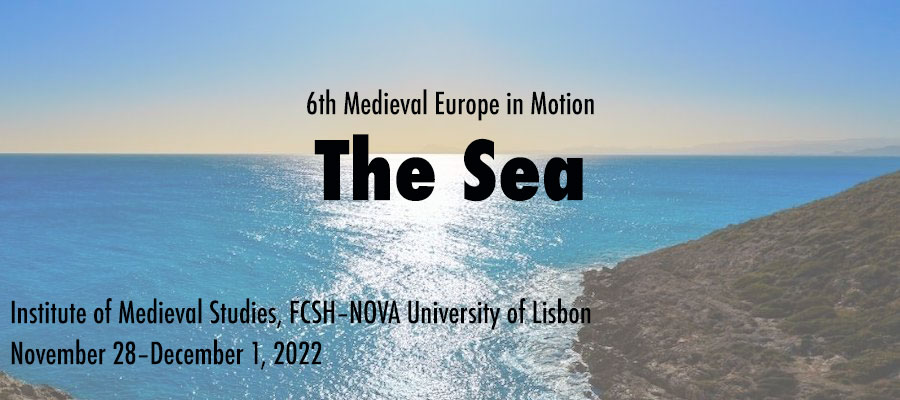How bold and skilled was the man who first made a ship and put to sea before the wind, seeking a land he could not see and a shore he could not know.
Robert Wace (c. 1110–c. 1174).
Depending on where one would stand in Europe in the Middle Ages, the sea could either be the centre of the known world or its ultimate edge. This mixed potential has always drawn humans into the big unknown, allowing them to use the sea to catch fish, to sail towards distant lands for reasons of faith and trade, to establish contacts with civilisations of different creeds, to wage wars for political and economic domination, and inspired them to write poetry and dream about the world beyond. All this is reflected in the abundant researches from Archaeology, Art History, History, Literature, and other disciplines that, in the past decades, have investigated fisheries and natural resources, overseas trade and commercial institutions, maritime power and socioeconomic conflict management, religious migrations, among other topics.
The sixth edition of the Medieval Europe in Motion conference is dedicated to the sea, and welcomes papers from all disciplines. Topics of the conference could include, but are by no means limited to:
- Art and literary works
- Artistic transfers by the sea
- Artistic production in seaside cities
- Circulation of manuscripts, patrons, and materials
- Circulation of techniques and ideas
- Commerce and its agents
- Conflict management
- Cultural encounters
- Diplomacy and political contacts
- Naval warfare and military expeditions
- Geographical expeditions
- Marine archaeology
- Maritime connections between seas
- Maritime frontiers
- Maritime landscapes
- Maritime law
- Nautical cartography and its production
- Perceptions and knowledge of the sea
- Port towns
- Power and institutions
- Pilgrimage and religious devotion
- Real and imaginary journeys
- Socioeconomic networks
The Conference will also have a section dedicated to "Medieval Lisbon and the Sea", continuing the tradition of studies on medieval Lisbon within the Institute of Medieval Studies. Proposals for papers are also welcome in this section.
Scholars of all disciplines are welcome to apply with proposals for sessions or individual papers.
Official languages: English, Portuguese, Spanish, French, Italian
